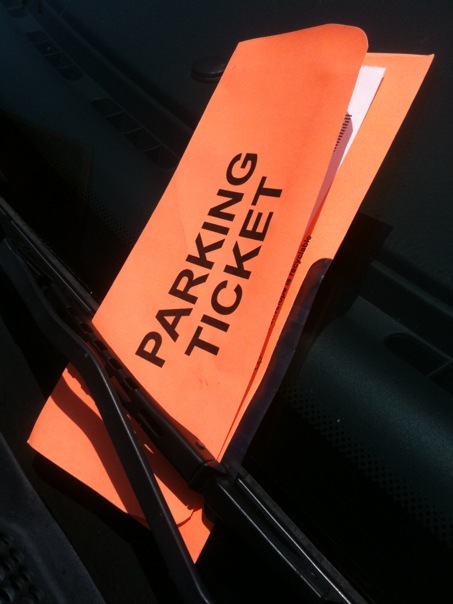
parking ticket - flickr user alicegop

no parking - flickr user brymo
Those tickets will all go away when you're out in the real world, right?
Probably…but don't count on it. While your school isn't going to share parking tickets racked up on campus with a neighboring city, or with the state, it's a standing record of your responsibility and you're better off taking care of it. On some campuses, parking enforcement might even be so kind as to waive your first ticket.
Something called the Family Educational Rights and Privacy Act (FERPA) might help protect you, depending on how your own state's department of education and court system decide to interpret it.
In Oklahoma, the state's two major universities, Oklahoma State University and the University of Oklahoma, won't release citation records with student names, as it claims they're educational records and protected by the law. The paper at Oklahoma State had apparently intended to distill information regarding more than 18,000 parking tickets issued on campus from August 1 through April 9. While OSU denied the request completely, Oklahoma University volunteered more numbers and statistics but no identity-specific information.
However in Maryland, or a number of other states, that might not be the case. When a student newspaper at the University of Maryland requested documents relating to a basketball player who had allegedly been issued 285 parking violations, worth a total of $8,000—and was turned down—Maryland appellate court in 1997 ruled against the school. Parking violations had nothing to do with a student's education, it was decided, and thus would be open under the Open Records Act.
In states where it is decided to be legal, the floodgates are open and it's just another piece of personal information that could potentially be available to companies that do background checks for new hires. Let it slip, and even if the letters stop it could very well come back to haunt you.
[The Daily O'Collegian, via Washington Post Campus Overload blog]
